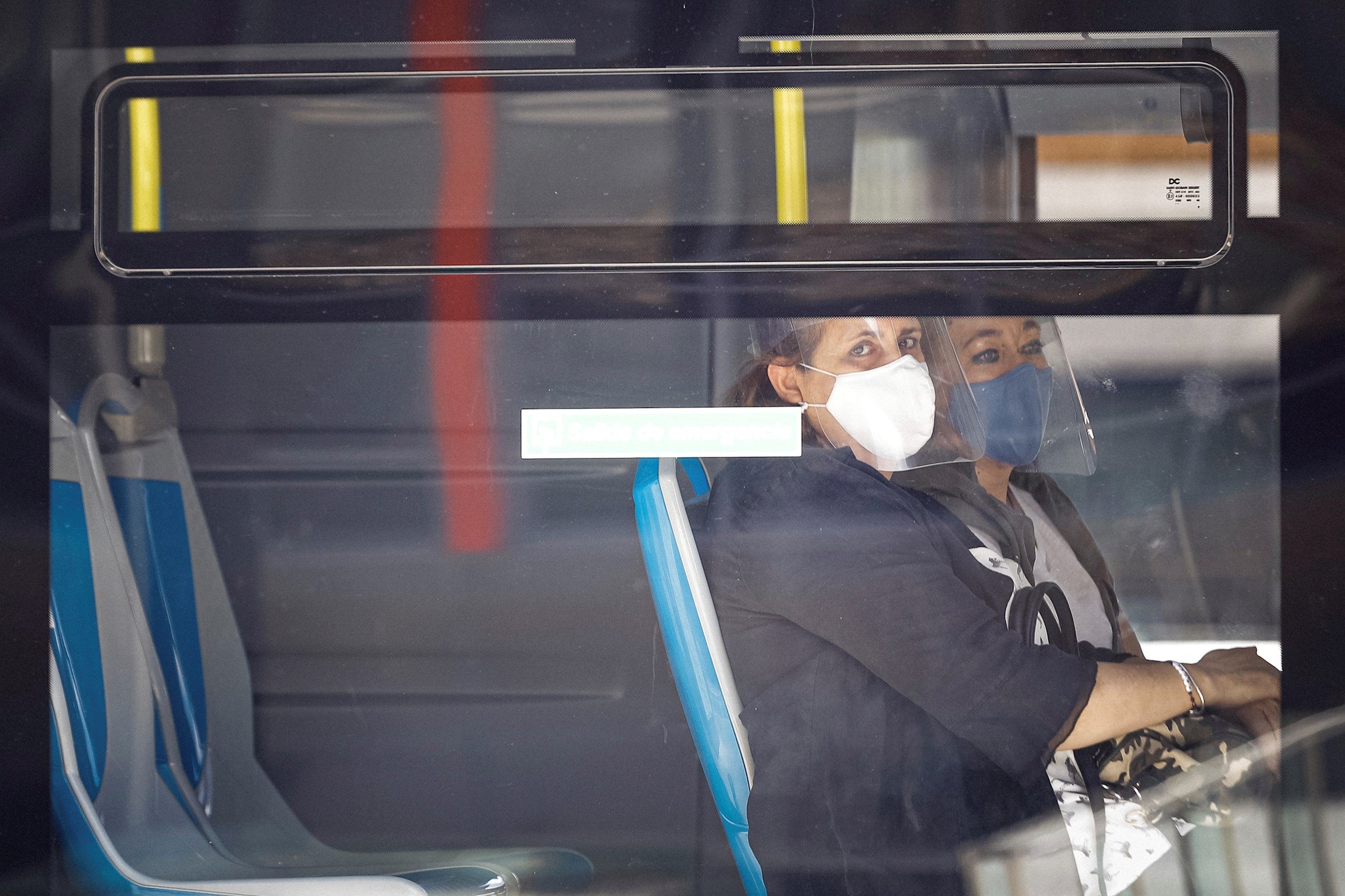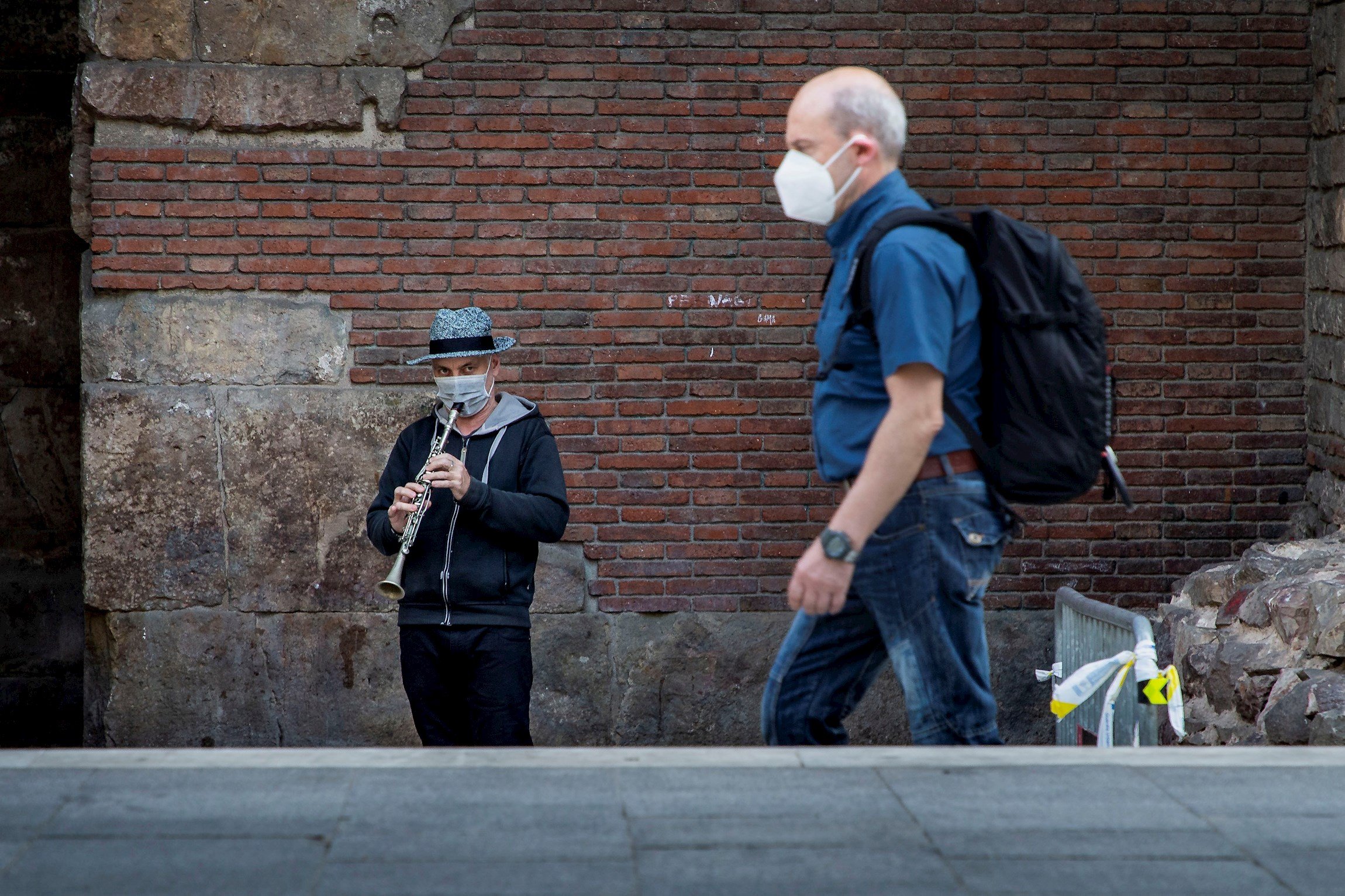The Spanish state's "four phase plan to reach a new normality" is already deep into its second half: in Catalonia, greater Barcelona and Lleida have just entered Phase 2 of the coronavirus de-escalation plan; the rest of Catalonia (along with most of Spain) is either in or looking forward to Phase 3 - which, just to confuse you, is actually the fourth and final stage. So what, you may ask, comes next?
This Tuesday, the Pedro Sánchez government has set out the measures for the "new normality" that lies not too far ahead. Masks will be mandatory - that's just one of the key provisions in a decree which spells out how the rules are to be managed after the state of alarm ends - returning some of the centralised authority to the autonomous governments.
Main measures included in the decree:
Health
- The competent authorities in Phase 3 of the coronavirus de-escalation are the Autonomous Communities except for the measures linked to the freedom of movement beyond the scope of the territorial health unit that is being applied. Thus, in Phase 3, the Catalan government will make decisions on mobility within all of Catalonia, but movement from Catalonia to other parts of the state (and to other countries) will still be dependent on what the Sánchez administration decides.
- The Communities will decide, in accordance with health and epidemiological criteria, the appropriate time to leave Phase 3 in the different territorial units in their community.
- Masks will be mandatory on public streets, in outdoor spaces and in enclosed spaces that are for public use or that are open to the public, as well as on transport. Failure to comply with this obligation will be punished with fines of up to 100 euros, and the Autonomous Communities and municipal councils will be responsible for monitoring, inspecting and controling this.
- Covid-19 is classified as an urgently notifiable disease.
- Communities must provide information when public health emergencies occur, to ensure proper coordination between health authorities and to strengthen the functioning of the National Health System.
- Communities should continue to provide the data necessary for the monitoring and epidemiological surveillance of Covid-19, as well as the situation of care capacities and human and material resource needs.
- The health services will guarantee, especially in primary care, that a diagnostic test of PCR or similar type will be performed on any suspicious case. Communities will need to ensure a sufficient number of professionals in the prevention and control of the disease, its early diagnosis, case care and epidemiological surveillance. They will need to create contingency plans to ensure a rapid and coordinated response.
- The competent administrations will have to guarantee the coordination of residences for elderly people and people with special needs and have Covid-19 contingency plans aimed at the early identification of possible cases between residents and workers, and their contacts.
- Prevention and hygiene measures will remain in force, such as the obligation to use masks as long as interpersonal distance is not guaranteed.
- The royal decree will incorporate the necessary measures to ensure the availability of surgical masks, hydroalcoholic gels and other necessary health products to protect health.
- The stocks or quantities supplied of medicines considered essential in the management of the health crisis must be communicated to the Spanish Agency for Medicines and Health Products to guarantee the supply at any time.

Transport and workplaces
- Wearing a mask will continue to be compulsory in transport by air, sea, bus or rail. It will also be required in cars and motor vehicles, public and private, with up to nine seats, including the driver, if the occupants of the passenger vehicles do not live in the same home. In maritime transport, the obligation will be adapted to the particularities of this mode of transport.
- Measures of prevention and hygiene must be adopted in workplace environments, such as the organization of work or shifts to avoid congestion, as well as in shops and commercial establishments, in residential centres of a social nature, and in hospitality and catering activities.
- The Spanish airport management company AENA must guarantee that health checks are carried out on passengers entering on international flights.
- Transport operators must adapt their transport offer to the evolution of the recovery in demand, ensuring an adequate provision of services so that measures to prevent contagion are maintained.
- Land transport operators whose services offering pre-assigned seats run across more than one Spanish province, must keep records of passenger contact information for a minimum of four weeks. This obligation also extends to air transport operators.
GUIDE | Coronavirus de-escalation: which phase am I in and what can I do?
MAP | Coronavirus infections in Catalonia by municipalities and neighborhoods
GRAPHS & DATA | Latest coronavirus statistics for Catalonia and Spain

